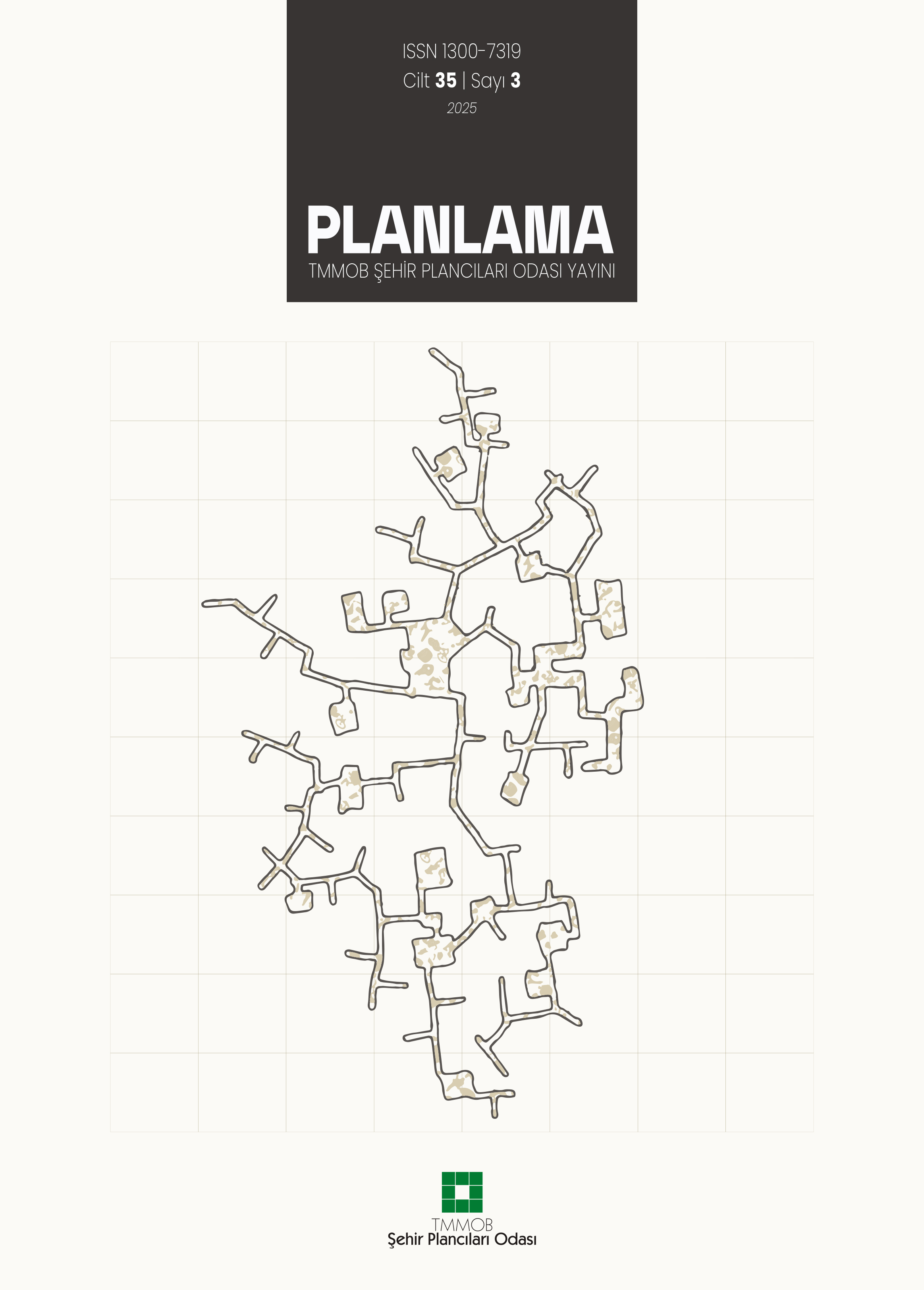Konutun Karşılanabilirliği Her Zaman İdeal Bir Konuta Erişimi Garanti Eder Mi?
Almira Yılmaz Çetinkaya, Bora YerliyurtYıldız Teknik Üniversitesi, Mimarlık Fakültesi, Şehir Ve Bölge Planlama Ana Bilim Dalı, İstanbulBu çalışma, yakın dönemde Türkiye’de ve Dünya’da birçok ülkede gündemde olan konut sorununu, yalnızca maddi imkânlar bağlamında değerlendirmenin yetersiz kalacağını söylerken konuta erişim meselesinin konutun durumu ve hanenin talepleri üzerinden ele alınması gerektiğini söylemektedir. Temel bir hak olan barınmanın, kapitalist politikalar ile metalaşması yaygın bir tartışma alanına sahip olsa da konuta erişim sorunu daha kapsamlı ele alınmalıdır. Hanelerin ihtiyaçları ve yaşam standartları yalnızca maddi kaynaklarla değil, aynı zamanda sosyal ve fiziksel çevreyle şekillenir. Bu nedenle, konut hakkının sürdürülebilirliğini sağlamak için konutun durumu ve hanenin talepleri de dikkate alınmalıdır. 2019 yılında pandemi ile başlayan sosyal ve ekonomik daralmalar ile Türkiye’de ve Dünya’da birçok ülkede alım gücünün her geçen gün düşmesi ve yüksek enflasyon nedeniyle tüm tüketim mallarındaki artışla beraber kiralık ve satılık konut fiyatlarının ödenebilir oranların üzerine çıkması konut sorununu tırmandırmış; etkili çözümler geliştirilememesi ile sorun iyice derinleşmiştir. Literatürde konut araştırmaları çoğunlukla konutun ödenebilirliği ve uygun fiyatlı konut üretimi üzerinden yürütülüyorken, içinde yaşanılan konutun durumuna bakılmamaktadır. Çalışmada, barınmanın ekonomik olarak karşılanabildiği durumda hane tercihi ve konutun durumu açısından konut sorununun mevcudiyeti araştırılmıştır. Sosyo ekonomik statü, bütünleşik deprem riski, mahalle bazlı ortalama kira fiyatı gibi parametrelerle İstanbul’da mahalle ölçeğine inilmiş; satılık veya kiralık konut ödenebilirliğinin en düşük, deprem riskli yapı stoğunun en yüksek olduğu Büyükçekmece ilçesi, Hürriyet Mahallesi’nde farklı haneler ile anket yapılmıştır. Saha araştırması ile hane halkı sayısına oranla konut içi kişisel alanın yetersizliği, ulaşım için belirli harcama oranı ve konuta güvensizlik gibi sorunlar tespit edilmiş ve ödenebilirlik sorunundan farklı olarak hanelerin talep ettiği konuta erişim sorunu yaşadığı tespit edilmiştir.
Anahtar Kelimeler: Ödenebilirlik, hane davranışı, konut erişilebilirliği, nitelikli konut.
Does the Affordability of Housing Always Guarantee Access to an Ideal Home?
Almira Yılmaz Çetinkaya, Bora YerliyurtDepartment Of Urban And Regional Planning, Yıldız Technical University Faculty Of Architecture, Istanbul, TurkeyThis study argues that addressing the housing problem in Turkey and globally solely in financial terms is insufficient. While affordability is important, factors like housing condition, security, and the environment also impact quality of life. Households' needs and living standards are shaped by both financial resources and their social and physical surroundings. Therefore, to ensure the sustainability of housing rights, both the condition of the housing and the demands of the household must be considered. After 2019, the housing problem worsened globally due to the social and economic impacts of the pandemic. As purchasing power declined in Turkey and worldwide, housing prices for rent and sale soared, driven by high inflation. While housing research has largely focused on affordability, it often overlooks the condition of the homes people live in. This gap highlights the need for a more comprehensive approach to problem, one that considers both affordability and the quality and suitability of the housing itself. This study examines housing problems related to household behavior and housing conditions, even when house is affordable. By examining parameters such as socio-economic-statues, integrated earthquake risk, neighborhood average-rent-prices; through all analysis for Istanbul we found that the Büyükçekmece, Hürriyet Neighborhood had the lowest housing affordability but also the highest integrated earth-quake risk; surveys conducted with homeowners and tenants. Research identified issues such as inadequate personal space, high transportation costs and living in earthquake-risk housing. As a result, we found that, apart from affordability, there is a problem of housing accessibility requested by the household.
Keywords: Affordability, household behaviour, housing accessibility, quality housing.
Makale Dili: İngilizce














